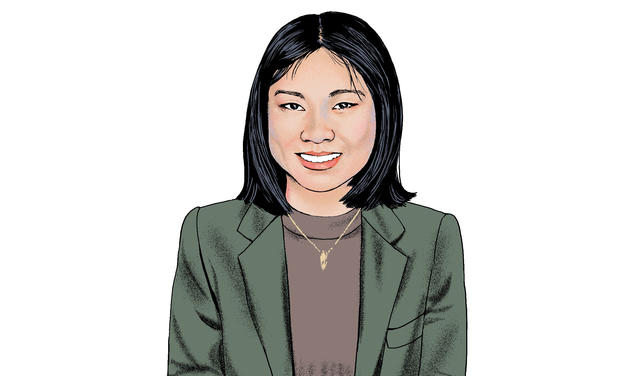Solomon ’14 Revisits Thesis About Comedy and Mental Illness in the Wake of Williams’ Death

Earlier this year, Amy Solomon ’14 wrote a senior thesis that explored the “sad-clown” stereotype that permeates the world of comedy — the idea that humor and mental illness often are two sides of the same coin. Her research, which included interviews with more than 30 working comedians, landed her a spot on the Aug. 8 episode of The Gist, a Slate podcast hosted by Mike Pesca. A few days later, reporters were calling Solomon for her thoughts about the death of one of her comedy idols, Robin Williams, who committed suicide Aug. 11.
The experience was both “really weird” and somewhat uncomfortable for Solomon. “It’s a difficult topic to talk about in definitive terms, because everyone wants to know — in a sound byte — ‘Is the connection between mental illness and comedic genius true?’ ” she told PAW. “I think there’s a lot of nuance, and in my thesis, I got to explore that.”
For example, when she asked comedians if they thought the link between depression and humor was real, they gave a resounding “yes.” But many doubted that the rate of depression or mental illness was greater among comics than it would be for, say, plumbers. Comedians, they told her, “are just the people who are allowed to talk about it and who have that platform.”
Solomon’s thesis was an exercise in reporting, not psychology or sociology — she majored in journalism as one of a handful of independent concentrators at Princeton. Her research outlined the rise of confessional comedy, from the work of Jonathan Winters and Mort Sahl in the 1960s to the routines of contemporary comedians Louis C.K., Tig Notaro, and Sarah Silverman. She also talked with performers about their personal obstacles.
“A lot of the comedians I talked to would never take medication for their depression, even though they’re really struggling with it, because they think if they do, it would take the edge off their comedy,” she said. “Other comedians think that’s absolutely ridiculous, that the most important thing is being OK.”
Solomon, an aspiring comedian who performed in Quipfire! and produced the campus late-night show All-Nighter, moved to Los Angeles after graduation to become assistant to the showrunner for the HBO series Silicon Valley. The night after Williams’ death, she went to a stand-up show where young comics spoke lovingly — and often tearfully — about their deep admiration for Williams, who made occasional visits to the LA clubs.
“The comedy community is portrayed as all these really dark, tortured people, but it’s an incredibly supportive and inclusive community,” Solomon said. “Going to that show was an incredibly healing experience, in some sense. There aren’t a lot of venues where you can get up and tell stories and cry openly.”










0 Responses